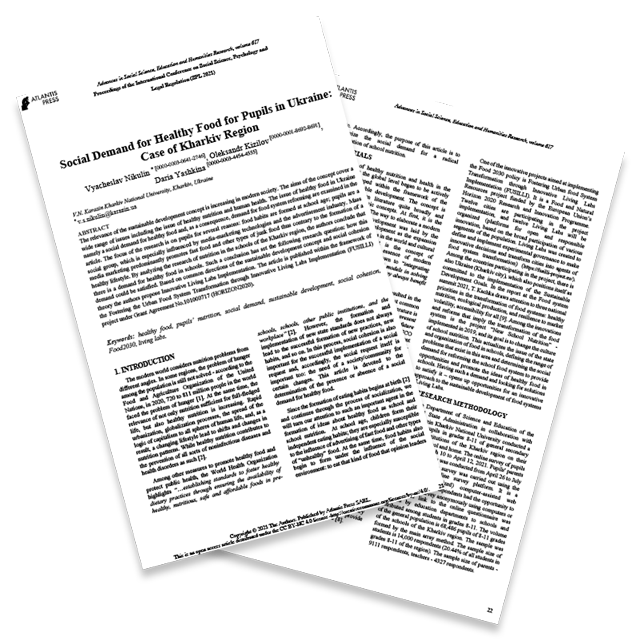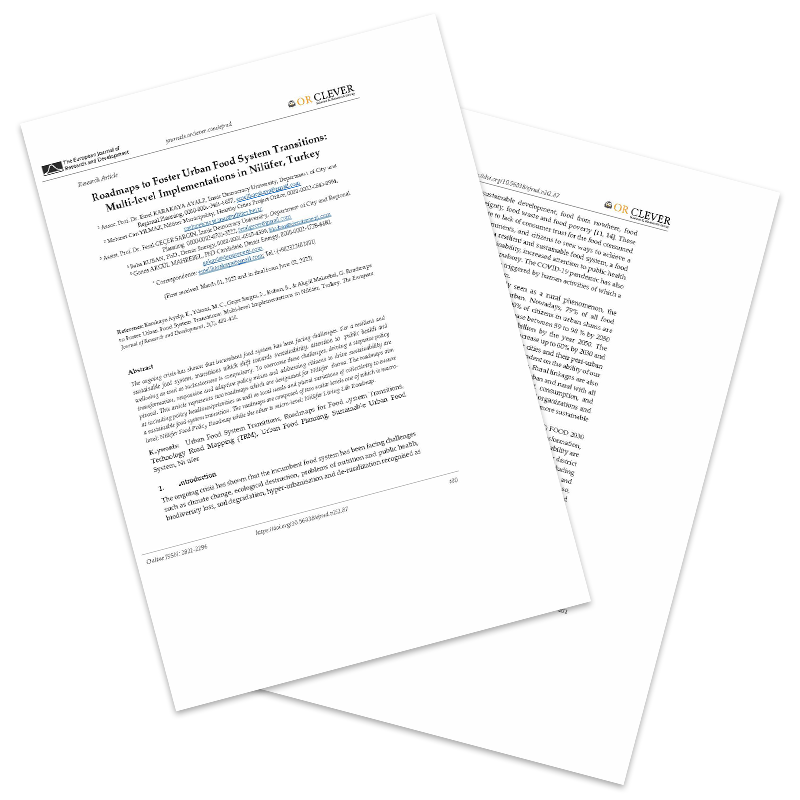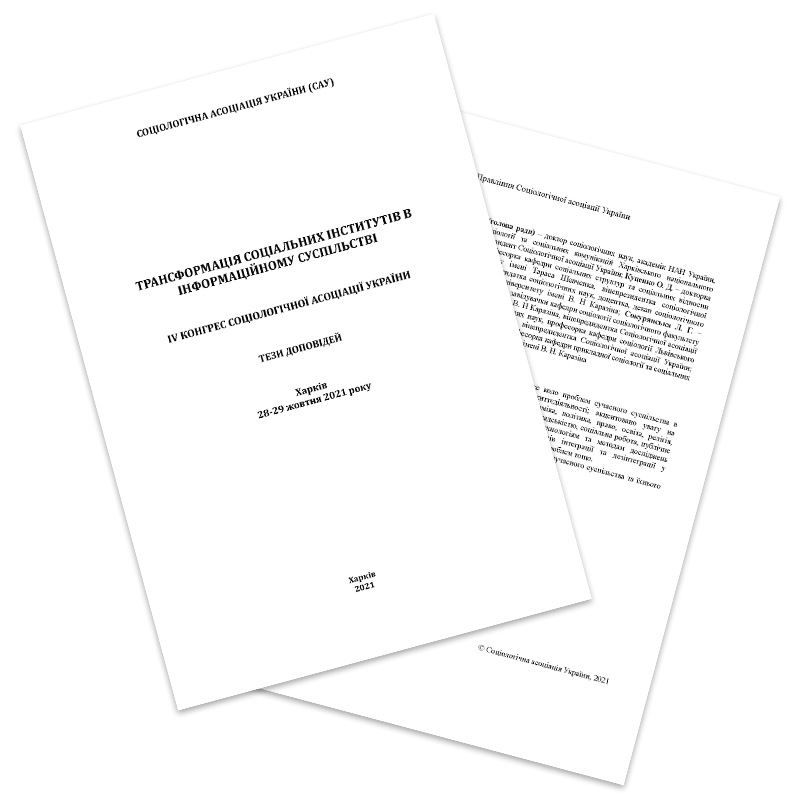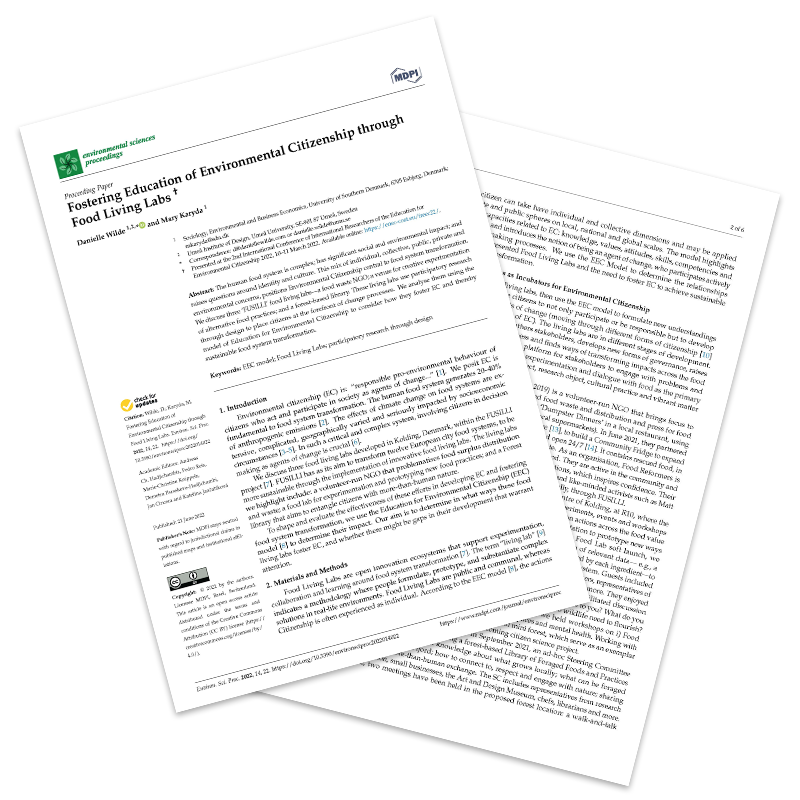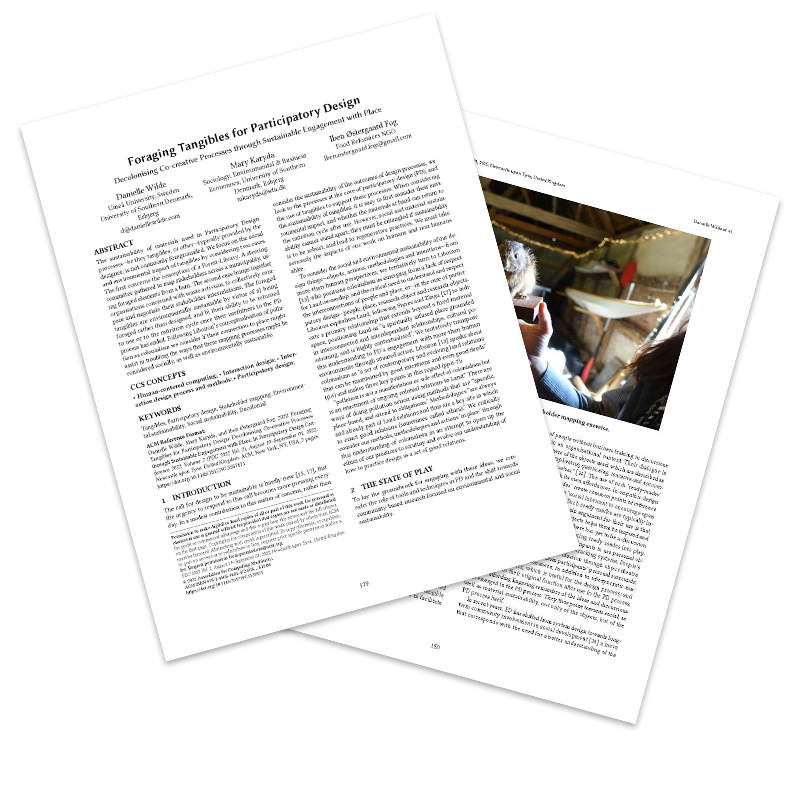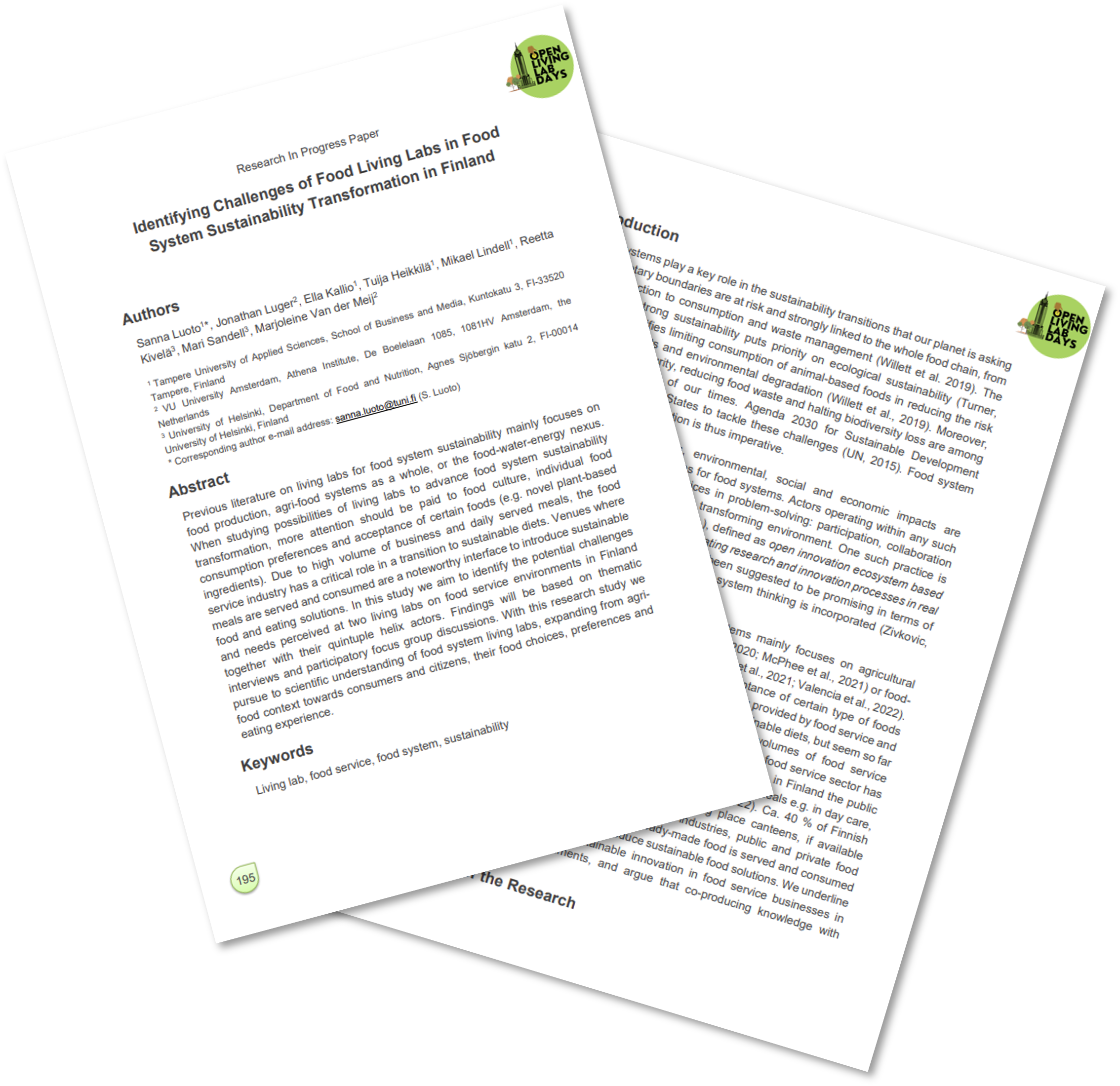Access FUSILLI's complete record of scientific publications on Zenodo!
Go to the FUSILLI Community on Zenodo
Scientific Publications
Social Demand for Healthy Food for Pupils in Ukraine Case of Kharkiv Region
Vyacheslav Nikulin, Oleksandr Kizilov, Daria Yashkina (2021)
The article examines the issue of healthy food in Ukraine, specifically the social demand for it and the need for food system reform. The research focuses on school pupils, as their food habits are formed at a young age and they are heavily influenced by media-marketing technologies promoting unhealthy options. It concludes that there is a demand for healthy food in schools and propose Innovative Living Labs Implementation based on the sustainable development concept and social cohesion theory.
Roadmaps to Foster Urban Food System Transitions: Multi-level Implementations in Nilüfer, Turkey
Karakaya Ayalp, E., Yılmaz, M. C., Geçer Sargın, F., Kuban, B., & Akgül Mahrebel, G. (2022)
The ongoing crisis has highlighted challenges in the incumbent food system, necessitating transitions towards a resilient and sustainable system that prioritizes public health, inclusiveness, and sustainability. Responsive and adaptive policy mixes that engage citizens and drive sustainability are crucial to address these challenges. This article presents the Nilüfer Food Policy Roadmap and the Nilüfer Living Lab Roadmap, which prioritize local needs and plural variations of collectivity to ensure a sustainable food system transition at macro and micro levels.
Perspective for the transformation of nutrition systems and practices through the prism of school meals in Kharkiv
Muradyan Olena, Khyzhniak Olekandr, Lytovchenko Artem (2021)
This thesis focuses on Kharkiv’s nutrition systems, policies, and practices, especially school meals. The school feeding system is sensitive to social changes and conflicts with family food policies and regulations. Social cooperation is necessary to solve the problem of sustainable nutrition practices for schoolchildren. The thesis presents Kharkiv’s experience in transforming the school nutrition system through catering management additions like menu choices and responsible partnership practices. A model with research, educational, and managerial levels is proposed to create a non-conflict communicative space in schools. [p. 265-267]
Fostering Education of Environmental Citizenship through Food Living Labs
Danielle Wilde and Mary Karyda (2022)
This article focuses on the role of Environmental Citizenship in transforming the complex and impactful food system. It examines three FUSILLI food living labs – a food waste NGO, a venue for experimenting with alternative food practices, and a forest-based library – that use participatory research to involve citizens in the transformation process. The article analyzes how these labs foster Environmental Citizenship and promote sustainable food system transformation by using the model of Education for Environmental Citizenship.
